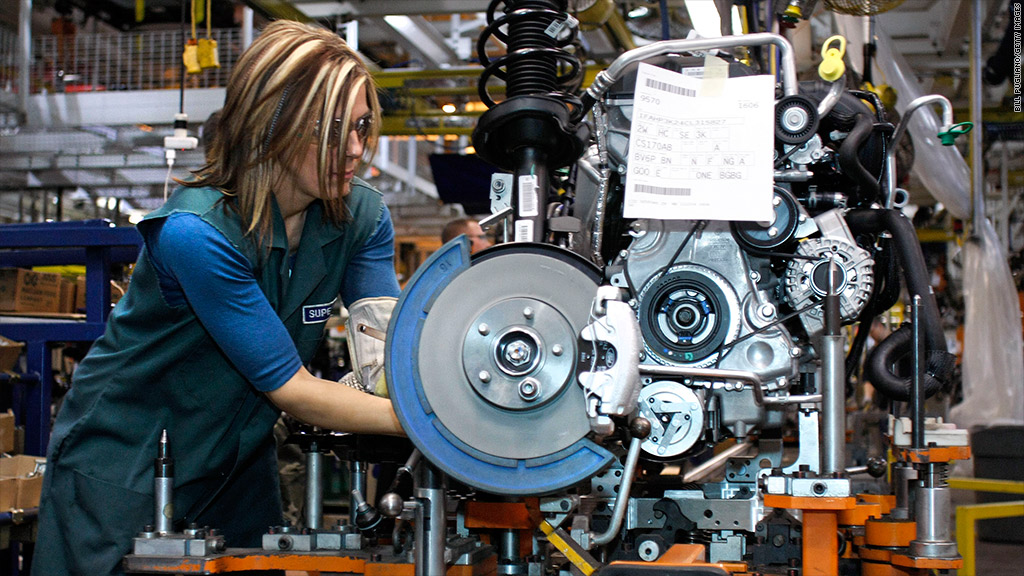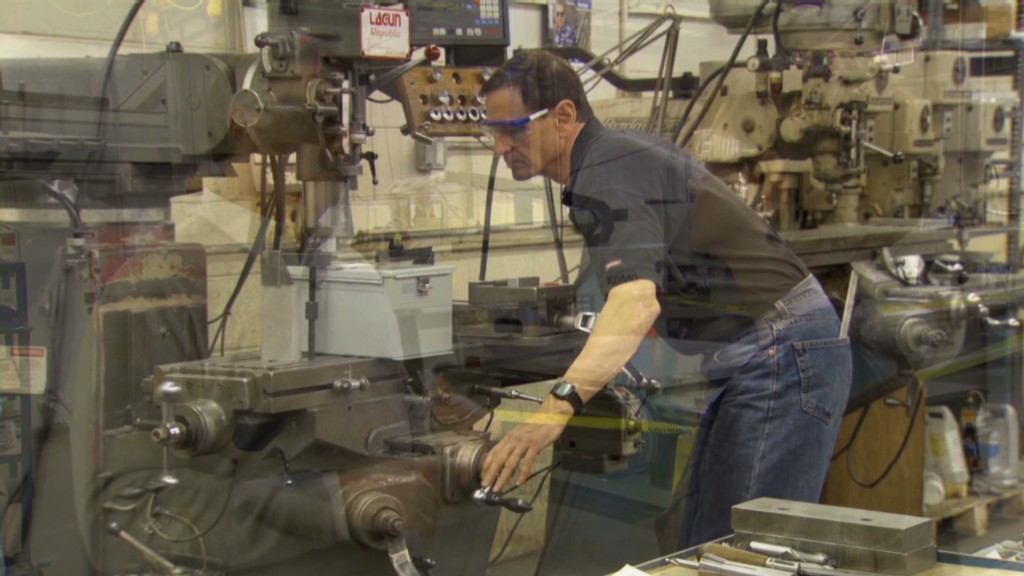
The much-lauded growth in American manufacturing jobs appears to have stalled.
After generating nearly a quarter million jobs since the recession ended, the U.S. manufacturing sector created just 4,000 new positions in January, according to the latest jobs report from the Bureau of Labor Statistics. The industry has basically seen zero job growth since the middle of last year.
The manufacturing recovery "is clearly petering out," said Alan Tonelson, a research fellow at the U.S. Business and Industry Council, which represents smaller and mid-size manufacturers.
Slowing U.S. demand for goods, sluggish economic growth overseas, and uncertainty over the federal budget mess are among the factors keeping a lid on the sector.
One big reason manufacturing job growth looked so good over the last few years was that the sector fared so poorly during the Great Recession.
Related: Jobs report: Steady hiring continues
The value of goods produced during the recession dropped by a staggering 20%, Tonelson said. With that drop came the loss of more than 2 million jobs.
When the recession ended, Americans went out and bought stuff -- especially automobiles. With that spending came a jobs rebound, Tonelson said. Higher energy prices and the rising costs of labor in China seemed to be sparking a resurgence of manufacturing in this country.

In 2010, U.S. manufacturing production growth registered a brisk 7.4%, he said, citing industrial production figures compiled by the Federal Reserve.
But in 2011 the growth in the value of manufactured goods slowed to just under 5%, said Tonelson. Last year it didn't even register 3%.
"The release of pent-up demand is tapering off," said John Lonski, chief economist at Moody's Capital Markets.
A recession in Europe and relatively weaker Chinese growth are also weighing on the U.S. manufacturing sector. The value of exported manufactured goods rose just 4% in 2012, Lonski said. That compares to growth of more than 7% in 2011 and over 14% in 2010.
That export slowdown comes mostly from slowing growth abroad, rather than "a fundamental loss of competitiveness in the Untied States," Lonski said.
Both Lonski and Tonelson said uncertainty -- over the the health of the global economy, Washington's ongoing tax and spending fight, and how much it will cost to cover employees under the new health care law -- has led businesses to put off capital investments.
Going forward, the outlook is murky.
Friday saw a fairly strong reading of the ISM manufacturing index, which measures activity in the sector. The index registered 53.1, ahead of the 50.5 expected by economists polled by Briefing.com. A reading over 50 represents growth, while under 50 means contraction.
But Lonski said industrial production is expected to rise by just 2.3% in 2013, even slower than 2012's 3.8% growth rate. That means manufacturing jobs may become even scarcer in the year ahead.


